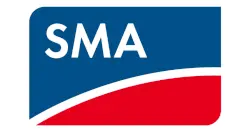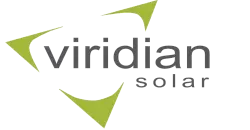Solar Inverters
Certified solar inverters for UK installers and renewable energy professionals - Alternergy offers a broad selection to support residential, commercial, and industrial solar PV projects with reliable, compliant solutions.
We stock leading brands such as GoodWe, Sungrow, Haier, and Viridian, offering a wide selection of string inverters, hybrid inverters, battery-ready inverters, AC-coupled models, and a full range of inverter accessories.
Available in single-phase and three-phase, our inverters range from 3 kW to over 350 kW, are designed primarily for grid-connected systems, with options also available for off-grid applications. All models are backed by manufacturer warranties for long-term coverage.
Solar inverters are essential to the performance of any solar PV system, converting direct current (DC) produced by solar panels into alternating current (AC) for grid connection and efficient energy usage. This conversion is required, as DC electricity generated by solar panels must be transformed into AC to be compatible with the UK national grid and standard electrical infrastructure.
Inverters support grid compliance, energy monitoring, and safety functions, making them a key component in ensuring the long-term efficiency and performance of any photovoltaic system—particularly within the growing renewable energy industry.
Modern solar inverters feature MPPT, anti-islanding protection, support for surplus energy storage, backup power use, and smart grid integration—ensuring efficient and resilient PV system performance.
The performance of a solar PV system largely depends on the type of inverter used. Common options include string, hybrid, battery-ready, AC-coupled, microinverters, and power optimisers—while central inverters are typically used for large-scale installations. The best choice depends on factors like system size, layout, storage needs, budget, and whether it’s on-grid or includes battery backup.
Understanding the distinct features and functionalities of these inverters is essential for solar panel installers. Common inverter types in the UK:
- String Inverters: These systems connect multiple panels in series, with combined DC power sent to a central inverter for AC conversion and grid export. They’re cost-effective, easy to install and maintain, and commonly used in commercial PV systems due to their scalability and efficiency.
- Hybrid Inverters: Combining the functions of a string inverter and a battery inverter, hybrid inverters convert DC to AC while storing surplus energy in batteries or exporting it to the grid. Their dual functionality supports energy management and backup power, making them ideal for new residential and small industrial installations.
- Battery Inverters (AC-Coupled Inverters): These inverters manage only the battery side of the system, converting DC to AC and vice versa. Often used to retrofit storage into existing PV systems with string inverters, they enable battery integration without replacing the original setup—ideal for phased system upgrades.
Modern solar inverters incorporate advanced technologies to maximise energy output, ensure system safety, and enable seamless grid integration.
Top Technical Features:
- Maximum Power Point Tracking (MPPT): Optimises energy production by constantly adjusting the voltage and current to get the best performance from the solar panels.
- Dual or Multi-MPPT Inputs: Allows different panel strings with varying orientations or shading to be optimised independently.
- Grid-Tie Functionality: Enables safe and compliant export of excess electricity to the UK national grid (G98/G99 compliant).
- Built-In Battery Management (in Hybrid Inverters): Manages charge/discharge cycles of connected battery storage systems.
- Anti-Islanding Protection: Automatically disconnects the inverter during a grid outage to ensure safety and prevent electricity from feeding back into the grid.
- Remote Monitoring & Data Logging: Real-time performance tracking via apps or portals for easier diagnostics and maintenance.
- Smart Communication Protocols (Modbus, Wi-Fi, RS485): Ensures integration with energy management systems, smart meters, and third-party monitoring tools.
While solar panels typically last over 25 years, inverters generally need replacement within 10 to 15 years—making their selection a key part of system planning.
Alternergy supplies a wide range of certified inverters that meet G98/G99 requirements, are ENA type-tested, and are suitable for DNO approval, helping to simplify grid connection and ensure regulatory compliance. All models are sourced from trusted manufacturers who follow recognised UK health, safety, and quality standards.
We offer hybrid and battery-ready inverters that support energy storage and backup functionality. Built for durability in varied UK conditions, modern inverters maintain high efficiency while ensuring system safety, managing energy flow, and supporting grid interaction.
Alternergy support UK installers with reliable solar inverters and energy storage solutions for residential and C&I projects. Our expert team is here to help find the right setup and offer competitive trade pricing. Get in touch or access your trade account.
Solar Inverters
Certified solar inverters for UK installers and renewable energy professionals - Alternergy offers a broad selection to support residential, commercial, and industrial solar PV projects with reliable, compliant solutions.
We stock leading brands such as GoodWe, Sungrow, Haier, and Viridian, offering a wide selection of string inverters, hybrid inverters, battery-ready inverters, AC-coupled models, and a full range of inverter accessories.
Available in single-phase and three-phase, our inverters are designed primarily for grid-connected systems, with options also available for off-grid applications.
Solar inverters are essential to the performance of any solar PV system, converting direct current (DC) produced by solar panels into alternating current (AC) for grid connection and efficient energy usage. This conversion is required, as DC electricity generated by solar panels must be transformed into AC to be compatible with the UK national grid and standard electrical infrastructure.
Inverters support grid compliance, energy monitoring, and safety functions, making them a key component in ensuring the long-term efficiency and performance of any photovoltaic system—particularly within the growing renewable energy industry.
Modern solar inverters feature MPPT, anti-islanding protection, support for surplus energy storage, backup power use, and smart grid integration—ensuring efficient and resilient PV system performance.
The performance of a solar PV system largely depends on the type of inverter used. Common options include string, hybrid, battery-ready, AC-coupled, microinverters, and power optimisers—while central inverters are typically used for large-scale installations. The best choice depends on factors like system size, layout, storage needs, budget, and whether it’s on-grid or includes battery backup.
Understanding the distinct features and functionalities of these inverters is essential for solar panel installers. Common inverter types in the UK:
- String Inverters: These systems connect multiple panels in series, with combined DC power sent to a central inverter for AC conversion and grid export. They’re cost-effective, easy to install and maintain, and commonly used in commercial PV systems due to their scalability and efficiency.
- Hybrid Inverters: Combining the functions of a string inverter and a battery inverter, hybrid inverters convert DC to AC while storing surplus energy in batteries or exporting it to the grid. Their dual functionality supports energy management and backup power, making them ideal for new residential and small industrial installations.
- Battery Inverters (AC-Coupled Inverters): These inverters manage only the battery side of the system, converting DC to AC and vice versa. Often used to retrofit storage into existing PV systems with string inverters, they enable battery integration without replacing the original setup—ideal for phased system upgrades.
Modern solar inverters incorporate advanced technologies to maximise energy output, ensure system safety, and enable seamless grid integration.
Top Technical Features:
- Maximum Power Point Tracking (MPPT): Optimises energy production by constantly adjusting the voltage and current to get the best performance from the solar panels.
- Dual or Multi-MPPT Inputs: Allows different panel strings with varying orientations or shading to be optimised independently.
- Grid-Tie Functionality: Enables safe and compliant export of excess electricity to the UK national grid (G98/G99 compliant).
- Built-In Battery Management (in Hybrid Inverters): Manages charge/discharge cycles of connected battery storage systems.
- Anti-Islanding Protection: Automatically disconnects the inverter during a grid outage to ensure safety and prevent electricity from feeding back into the grid.
- Remote Monitoring & Data Logging: Real-time performance tracking via apps or portals for easier diagnostics and maintenance.
- Smart Communication Protocols (Modbus, Wi-Fi, RS485): Ensures integration with energy management systems, smart meters, and third-party monitoring tools.
Alternergy support UK installers with reliable solar inverters and energy storage solutions for residential and C&I projects. Our expert team is here to help find the right setup and offer competitive trade pricing. Get in touch or access your trade account.






